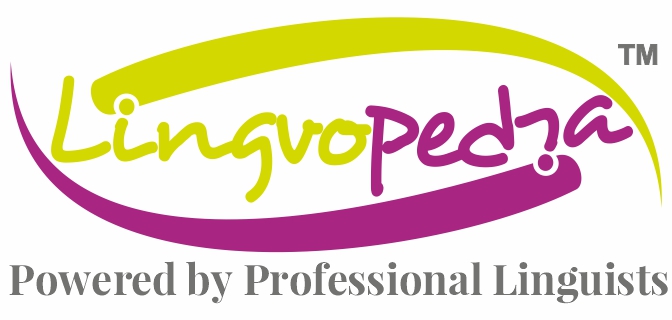Interpretation
Consecutive Interpretation
It is more important than ever to be able to communicate effectively across linguistic barriers in a world where globalization has brought together individuals from many linguistic and cultural origins.
Partial List of Major Languages we Translate and Localize
Language Scientific is a full-service translation and localization company. We translate and localize to/from over 215 languages, and we interpret into/from over 150 languages, including all the major European, Asian, American, African, Indian and Middle Eastern languages. Below is a sampling of languages we translate, localize and interpret:
- Afghani (Dari)
- Hungarian
- Oromo
- Afrikaans
- Ibo/Igbo
- Pashto
- Akan
- Ilocano
- Persian (Farsi)
- Albanian (Gheg & Tosk)
- Indonesian
- Polish
- Algerian
- Italian
- Portuguese
- Amharic
- Japanese
- Portuguese/Cape Verdean Creole
- Arabic (All Dialects)
- Kachin
- Potohari
- Armenian
- Kannada
- Pulaar
- Assamese
- Karen
- Punjabi
- Azeri
- Karreni
- Putien
- Bambara
- Kashmiri
- Quechua
- Bangla
- Kazakh
- Romanian
- Bengali
- Khmer (Cambodian)
- Russian
- Berber
- Kicongo
- Samoan
- Bosnian
- Kinyarwanda
- Serbo-Croatian
- Bravanese
- Kirundi
- Serbian
- Bulgarian
- Kiswahili
- Shanghainese
- Burmese
- Konkani
- Shona
- Cambodian (Khmer)
- Korean
- Sinhalese
- Cantonese
- Krio (Sierra Leone)
- Slovak
- Cape Verdean
- Kurdish
- Slovenian/Slovene
- Cebuano
- Kurdish Kermanshahi
- Somali
- Chaldean
- Kurdish Kurmanji
- Soninke
- Chin
- Kurdish Sorani
- Spanish
- Chinese (Simplified)
- Lao
- Sudanese
- Chinese (Traditional)
- Lao
- Swahili
- Croatian
- Latvian
- Swedish
- Czech
- Lingala
- Sylheti
- Danish
- Lithuanian
- Tagalog
- Dari
- Luganda
- Taiwanese
- Dutch
- Macedonian
- Tamil (Sri Lankan & Indian)
- Ewe
- Malay
- Telugu
- Falam
- Malayalam
- Tetun
- Fante
- Malinke
- Thai
- Farsi
- Mandarin
- Tibetan
- Filipino
- Mandingo
- Tigre
- Finnish
- Mandinka
- Tigrinya
- Flemish
- Marathi
- Toishan (Chinese)
- French
- Marshallese
- Tongan
- Fukienese
- Mirpuri
- Tshiluba
- Fulani
- Mixteco Alto
- Turkish
- Fuzhou
- Mixteco Bajo
- Twi
- Gaelic
- Mongolian
- Ukrainian
- Georgian
- Montenegro
- Urdu
- German
- Moore
- Uyghur
- Greek
- Navajo
- Uzbek
- Gujarati
- Ndebele
- Vietnamese
- Haitian Creole
- Nepali
- Wenzhou (Chinese)
- Hakka
- Norwegian
- Wolof/Ouoloff
- Hebrew
- Nuer
- Xhosa
- Hindi
- Oriya
- Yiddish
- Hmong
- Romansch
- Yoruba
If you require translation services into a language that is not listed, please contact us below.
A complex translation technique called Lingvopedia consecutive interpretation translates spoken text from one language into another in real time, usually following the speaker’s conclusion of a speech segment. Consecutive interpretation permits a more methodical and thorough approach to translation, in contrast to simultaneous interpretation, in which the interpreter talks virtually simultaneously with the speaker. This approach involves not only fluency in language but also extraordinary memory, critical thinking, and cultural awareness.
Consecutive interpretation using Lingvopedia is fundamentally a cooperative effort between the interpreter and the speaker. The speaker speaks in short bursts, halting sometimes to enable the interpreter to accurately translate the content into the target language. When using the pause-and-translate technique, the interpreter must pay close attention to what is being said, assess its content, and then faithfully translate it into the target language while preserving the speaker’s nuances and tone.
Lingvopedia consecutive interpretation stands out for its versatility in different settings and scenarios. Consecutive interpreters are essential in promoting communication and guaranteeing that all participants can completely understand and participate in the discussion, whether it’s in a formal conference, business meeting, courtroom trial, or medical consultation. Their capacity to effectively communicate intricate concepts, feelings, and cultural quirks is essential for fostering constructive relationships across language barriers, settling disputes, and establishing trust.
Additionally, Lingvopedia’s consecutive interpretation acts as a bridge across cultural divides, fostering communication, cooperation, and idea sharing among people with various backgrounds. Interpreters enable cross-cultural communication and understanding by removing language barriers, which fosters more harmony and cooperation in a world growing more interconnected by the day. Interpreters facilitate mutual respect and empathy among distinct populations by communicating meaning, intent, and emotions via their work.
Furthermore, flawless interpersonal and communication abilities are required for Lingvopedia consecutive interpretation. Interpreters are required to handle intricate interpersonal situations, maintain objectivity and neutrality, and professionally and clearly communicate the speaker’s message. In addition, they need to be skilled in multitasking, stress management, and quick thinking because interpretation frequently takes place in hectic, high-pressure settings with little margin for error.
For Lingvopedia consecutive interpreters, cultural competence is just as important as linguistic aptitude and cognitive ability. They must be sensitive to cultural subtleties and variances and have a thorough awareness of the rules, conventions, and etiquette of both the source and target languages. Interpreters assist in bridging cultural divides and enabling meaningful communication that cuts across language barriers by understanding not only words but also cultural context.
The benefits of Lingvopedia consecutive interpretation outweigh any difficulties and intricacies that may arise. Interpreters are fortunate to have a crucial role in promoting understanding, easing communication, and creating connections between individuals from different backgrounds. Their work fosters empathy, respect, and an appreciation for language and cultural diversity in addition to providing people with access to essential information and services.


